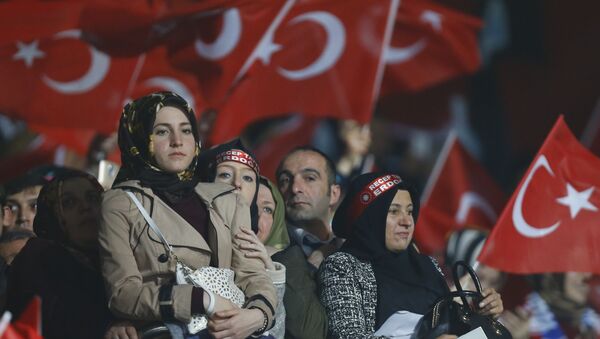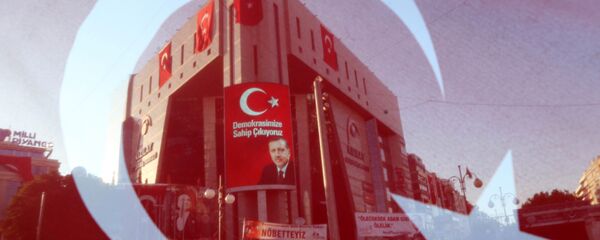However, Rutte has made it clear that the foreign minister will not be welcome if his intention is to attend rallies to ramp up support for Erdogan.
"It is not about him coming to the Netherlands. He can come to visit the Mauritshuis museum or see the tulips if there are any. We do not want him holding rallies," Rutte told a news conference in Brussels.
"there will be no lobbying or support for dictators." #PVV @geertwilderspvv speaks against #Erdogan outside Turkey🇹🇷embassy in Netherlands🇳🇱 pic.twitter.com/6WkkWHRmIS
— ← (@JPY_Kurdish) 9 March 2017
The Netherlands is home to a large number of Turkish "guest workers," particularly in Rotterdam, Amsterdam and The Hague. Many of them are eligible to take part in the referendum.
There is growing concern throughout Europe that the Turkish government is attempting to conduct its political campaign on foreign soil, chasing the votes of Turkish citizens abroad, promoting the controversial plan to cede more powers from the Turkish parliament to Erdogan.
German Tensions
In Germany, the authorities have banned a number of marches — ostensibly on security grounds — amid clashed between pro- and anti-Erdogan proponents.
Relations between Ankara and Berlin worsened, March 9, when Chancellor Angela Merkel hit back at comments by Erdogan accusing Germany of using "Nazi tactics" to prevent the rallies.
"It cannot be justified. Nazi comparisons only lead to misery. This needs to stop," Merkel said in a speech to the Bundestag.
The growing unrest in Europe over the Turkish referendum campaign being conducted so overtly within EU states is causing tensions — not only within the European Union — but also within NATO.
Turkey is a NATO member — as are Germany and the Netherlands — and the military alliance is heavily reliant on Turkish assets — most notably its airbase at Incirlik.
EU-Turkey Deal
The situation is exacerbated by the controversial EU-Turkey migrant deal — designed to stem the flow of migrants crossing from Turkey into Europe. Under the deal, "irregular migrants" — those refused asylum or not claiming it — are to be returned to Turkey in return — on a one-for-one basis — for Syrian refugees in Turkey being relocated to EU member states.
The plan has hit the buffers because of opposition form human rights groups and member states opposed to the mandatory relocation of migrants on a quota basis. It has also run into trouble because it is contingent with accelerating Turkish accession into the EU, which is facing mounting opposition from those who see Erdogan as cracking down on opposition and the media in a continuing power-grab.
Relations between Germany and Turkey have been strained for months, but were exacerbated by the arrest, February 27, of Deniz Yucel, a German-Turkish journalist working for Die Welt newspaper. He was arrested and detained on charges of supporting a terrorist organization and inciting public violence.
He is one of six German citizens detained in the crackdown on followers of exiled Turkish cleric Fethullah Gulen, now living in the US, who Turkish President Recep Tayyip Erdogan blames for being behind the failed coup, July 2016.







